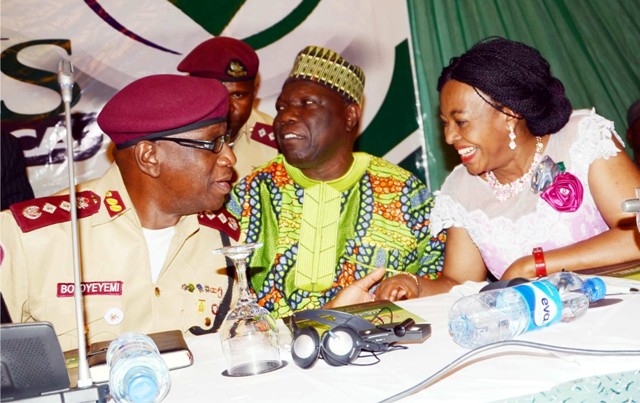Business
FG Raises Excise Duty On Alcoholic Drinks, Tobacco

The Federal Government has raised excise duty on alcoholic beverages and tobacco, with effect from June 4, 2018.
There is, however, no increase in excise duty of other locally excisable products.
The Minister of Finance, Mrs. Kemi Adeosun, who announced this, in Abuja, yesterday, stated that the new excise duty rates were spread over a three-year period from 2018 to 2020 in order to moderate the impact on prices of the affected products.
Under the newly approved excise duty rates for tobacco, in addition to the 20 per cent ad-valorem rate, each stick of cigarette will attract a N1 (N20 per pack of 20 sticks) in 2018, N2 specific rate per stick (N40 per pack of 20 sticks) in 2019 and N2.90k specific rate per stick (N58 per pack of 20 sticks) in 2020.
The new specific excise duty rates for alcoholic beverages cut across Beer & Stout, Wines and Spirits for the three years 2018 to 2020.
Under the new regime, Beer & Stout would attract N0.30k per centilitre (Cl) in 2018 and N0.35k per Cl each in 2019 and 2020.
Wines would attract N1.25k per Cl in 2018 and N1.50k per Cl each in 2019 and 2020, while N1.50k per Cl was approved for Spirits in 2018, N1.75k per Cl in 2019 and N2.00k per Cl in 2020.
The minister disclosed that the new excise duty regimes followed all-inclusive stakeholder engagements by the Tariff Technical Committee of the Federal Ministry of Finance with key industry stakeholders.
According to her, the upward review of the excise duty rates for alcoholic beverages and tobacco would achieve dual benefits of raising the government revenues, as well as, reducing the health hazards associated with tobacco-related diseases and alcohol abuse.
She said, “The Tariff Technical Committee (TCC) recommended the slight adjustment in the excise duty charges after cautious considerations of the Government’s Fiscal Policy Measures for 2018 and the reports of the World Bank and the International Monetary Fund Technical Assistance Mission on Nigeria’s Fiscal Policy.
“The effect of the excise duty rates adjustment on trade and investment was also assessed by the Federal Ministry of Trade and Investment and it adopted the recommendations of the TTC.
“Furthermore, peer country comparisons were also carried out showing Nigeria as being behind the curve in the review of excise duty rates on alcoholic beverages and tobacco.”
Following the President’s approval, Adeosun disclosed that the new excise duty rate on tobacco was now a combination of the existing ad-valorem base rate and specific rate while the ad-valorem rate was replaced with a specific rate for alcoholic beverages.

